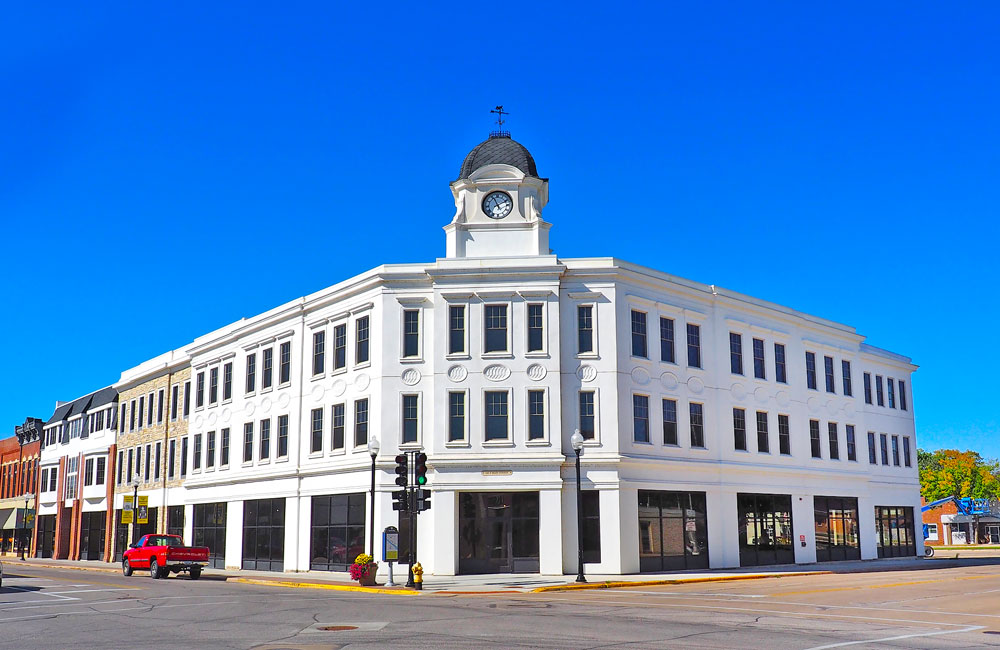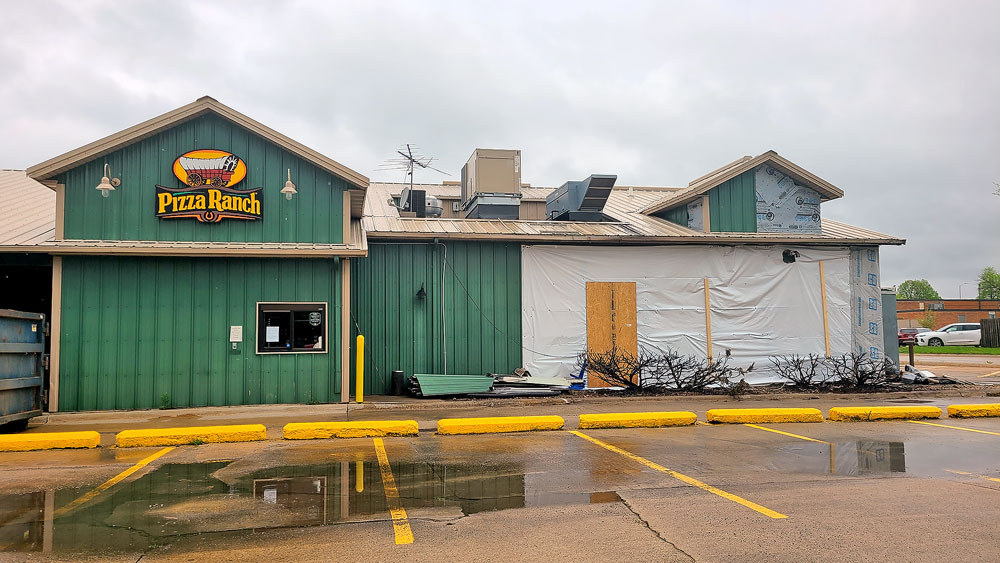Two Union House copyright infringement claims dismissed in federal court

By Bob Steenson, bsteenson@charlescitypress.com
A U.S. District Court judge has dismissed two copyright violation claims filed by an architectural firm against the new owner and contractors now completing work on the Union House in Charles City’s downtown Main Street.
The judge ruled that owners of a building have a right to work on the building and make changes to it, including completing unfinished work.
Cornice & Rose LLC, an Illinois company that had provided architectural and construction services for the project then known as the McQuillen Place, had filed suit last November against First Security Bank & Trust Co., Four Keys LLC, Dean Snyder Construction Co., several subcontractors and two individuals for allegedly violating Cornice & Rose’s copyright on the design of the building.
Four Keys is a company formed by the same bank holding company that owns First Security, for the purpose of managing the Union House project. First Security financed the purchase of the McQuillen Place Co. assets in U.S. Bankruptcy Court, particularly the unfinished three-story residential and commercial/retail building on Main Street.
Cornice & Rose had accused Four Keys of copyright violation and “piracy,” arguing that Four Keys and all the companies it hired to finish work on the Union House were violating Cornice & Rose’s design copyright because the bank had not acquired a license for the design of the building, and because they were copying the work that had already been done on the building in order to complete it.
But Judge Linda Reade, in the U.S. District Court for the Northern District of Iowa, ruled this week that a copyright violation would only have occurred if Four Keys, the bank or the others had used Cornice & Rose’s design to create another copy of the building.
Citing U.S. copyright laws and cases that have been decided on the issue, Reade wrote that it’s clear the owner of a building can make any changes to the building — even if it was designed by an architect who holds a copyright on the design — without the consent of the architect.
Reade wrote that Cornice & Rose’s suggested limitation on the rights of a building owner to make alterations “defies common sense.”
Cornice & Rose suggested in its lawsuit that if Four Keys wanted to proceed with construction on the building, it could have gotten Cornice & Rose’s permission, could have finished the building without using any plans, or could have substantially altered the existing building so it no longer resembled Cornice & Rose’s plans.
“Option 1 would give the architect a ‘veto’ over subsequent adaptation and even repair of inhabitable buildings, a result not only impractical but also inimical to the best interest of architects in the long run,” Reade wrote.
“Option 2 is a recipe for professional malpractice and structural failure. No professional architect or builder would commence a substantial renovation project without drawings or plans reflecting the existing structure,” she wrote.
“Option 3 merely encourages economic waste, forcing the owner to destroy work product which he has already bought and paid for,” she said in her ruling.
She said copyright law makes it “undoubtedly true that a homeowner could not copy the architectural plans in order to build another home on another site,” … “but it seems equally clear that (the law) places no limits upon the means by which building owners may alter their buildings without fear of infringement.”
That includes hiring contractors to complete the building, Reade wrote.
“Whether the alteration is accomplished by measuring the existing structure or by copying the original plans for the existing structure is simply immaterial,” she wrote.
“Because C&R does not allege that any defendant built an identical or substantially similar building to McQuillen Place there can be no copyright infringement claim,” she ruled.
She also noted that some aspects of the case had already been decided.
Cornice & Rose had fought the original sale of the building in bankruptcy court, was overruled, appealed the decision to the Eighth Circuit Court of Appeals and lost again.
The copyright lawsuit was filed against Four Keys LLC, First Security Bank & Trust, Dean Snyder Construction Co., Young Construction Ltd., Perry Novak Electric Inc., Kamm Excavating Corp., Superior Lumber Inc., Mick Gage Plumbing & Heating Inc., and Northern Cedar Service Co. Inc.; as well as individuals Kurt Herbrechtsmeyer and Brian Young.
Earlier this month, Four Keys and First Security filed a counterclaim against Cornice & Rose, alleging that the building design failed to meet professional standards and that Four Keys had been forced to spend more than $3.4 million to repair and complete the Union House.
It cited a list of alleged “defective, incomplete and architectural problems with the building,” and said that Cornice & Rose’s alleged negligence resulted in a building that “was not suitable for occupancy and use without a substantial investment in the repair and completion of the project.”
Work on what was then known as the McQuillen Place began in 2014 with Cornice & Rose hired by McQuillen Place Co. LLC to design the project and in some aspects supervise the construction. The principal developer behind McQuillen Place Co. was Charles Thomson, a Charles City attorney.
Work on the project stalled in 2017 and Cedar Rapids Bank & Trust, the bank holding the original construction mortgage, filed for foreclosure in 2018. Later that year First Security took over the mortgage and all interest in the foreclosure action, including the original unpaid principal, interest and penalties that at that point it said were greater than $4 million.
McQuillen Place Co. LLC filed for bankruptcy in 2019, and in April 2020 the bankruptcy court judge approved selling the assets of McQuillen Place Co. to First Security.









Social Share